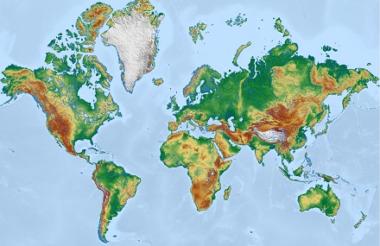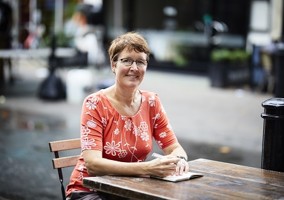Rob Preston investigates the current trend of international aid charities moving their headquarters out of the UK.
Many UK-based international development charities have centred their overall strategy in recent years on moving control of the organisation to other countries they operate in, with a handful making great strides towards doing so.
Some charities have done this by moving UK-based roles overseas where appropriate while others, like Oxfam and Actionaid, have taken the leap of relocating their head offices to the global south.
The reasons for this shift appear to be both practical and philosophical, with charities wanting to improve the efficiency of their work and protect their incomes during difficult economic conditions in the UK.
Tamsyn Barton, chief executive of Bond, the umbrella group for international development charities, says: “It is often felt that greater impact can be achieved by increasing the numbers of staff on the ground relative to those in the north.
“There is also the recognition that the role of northern NGOs is to provide support and not to drive the development agenda.”
Donors are another factor, says Barton, as they are “increasingly looking to fund southern civil society organisations directly”.
And then there is Brexit. According to Bond’s research, UK charities currently receive around €356.9m (£317.8m) of EU funding and service contracts, which is now at risk as the government negotiates its exit terms from the union.
Barton says this potential withdrawal of funding has led many charities “to look to other routes to secure the delivery of their programmes”.
Moving jobs
Many international charities already base most of their staff overseas, even if their executive team remains in the UK.
For example, sexual health charity Marie Stopes has only 220 people based in its London office, out of a total workforce of about 13,000 and development charity World Vision has 376 staff in the UK out of 42,000 worldwide.
But some are tipping the balance even more in favour of other countries than they have been. Human rights charity Amnesty International has halved its number of UK-based roles in the past few years, with many of these being replaced in its other offices around the world.
Nicki Deeson, finance and IS director at Amnesty, said in a recent interview with Charity Finance: “We’ve opened up branch offices in places like Kenya, South Africa and Mexico, and moved quite a lot of the research and campaign roles we used to have in London to those offices.”
Development charity VSO, which has 244 domestic staff and 566 overseas, has also started moving roles abroad and expects to cut its UK workforce by 25 per cent over the next five years.
Responding to Charity Finance’s Chief Executives Survey 2017, Philip Goodwin, chief executive, said: “We recently reduced the UK headcount by around 20 posts as part of an overall need to streamline and boost efficiency. It is likely that as a global organisation whose work is primarily delivered in the global south, we will continue to reduce the size of our London-based staff. A good example of this is our current head of monitoring and evaluation – previously a UK-based post, is now being recruited outside the UK.”
International charity WaterAid, which has 764 staff across the country, including 64 per cent in the UK, also plans to move roles out of London where appropriate, but has come across some barriers to doing so.
Head of international people management Sarah Redshaw said: “Where possible, as regional roles have become vacant and where strong local talent exists, we have relocated them out of London and into the region or country. For example, when our East Africa Regional Director role became vacant in the UK, we recruited the replacement in the region.
“However, three members of the South Asia regional team remain in London because we do not have a regional hub in South Asia and there are certain challenges in the region.”
A spokeswoman for the charity added that there are political sensitivities in South Asia that restrict travel to and from some countries in the region if based in a neighbouring country. Therefore the regional director and team for the region are based in the UK. All of the charity’s other country directors and their teams are based in the country they serve, apart from Sierra Leone and Liberia, where both country offices are managed under one programme with one director.
Power to the people
As well as moving roles oversees, the focus for some international charities has been increasing the agency of their international offices.
Speaking to Charity Finance recently, Oxfam director of finance and information services Alison Hopkinson said the charity is giving international affiliates more autonomy, including some, such as Oxfam India, being able to do their own fundraising.
Oxfam GB is phasing out its country directors and has moved most of these roles to Oxfam International, where there is one per country. In 2016/17, it transferred half of the country offices it previously owned to the charity’s affiliates and plans to sign over the remainder by 2018, according to its latest accounts.
Oxfam GB has also closed or transferred to other affiliates many of the regional centres it ran, which provide back-office support to country offices, as part of it move to reduce the number of countries reporting to it from 45 to 35.
During 2016/17, it transferred Oxfam GB staff and assets in Cambodia, Vietnam, Niger and Nigeria to management by Oxfam Netherlands, and in Honduras, Bolivia and Guatemala to Oxfam Spain.
In that year and the first half of 2017/18 it has closed Oxfam GB regional centres in Latin America and the Caribbean, Southern Africa and Asia, the Middle East and North Africa, the Horn, East and Central Africa and West Africa.
This reorganisation has meant making many staff redundant, 126 in 2016/17, and an introduction to the charity’s latest accounts describes it as a “challenging journey”.
It says: “In the past, we managed, spent and accounted for the money we raised from the British public and institutions. Now, we share this responsibility with others, and act as a partner rather than a manager. Despite the challenges, we are making significant progress.”
In her interview, Hopkinson said: “The end game total makes sense to me, it is just getting there that is the painful thing.”
Earlier this year, Marie Stopes launched a staff training programme to help workers in the global south develop their skills with the aim to step into country or regional director roles.
According to the charity’s latest accounts, the programme consists of two modules, the first of which was delivered in April 2017.
It says: “The initial focus is on clinical standards, understanding financial management and project cycle management, whilst also bringing in broader topics like self-awareness, situational management and effective decision making.”
International HQ
Oxfam International confirmed this year an agreement with Kenya’s government to move its international headquarters to the country’s capital city of Nairobi.
It is not the first aid charity to move its international headquarters out of the UK. In 2005 ActionAid moved its head office to South Africa to be closer to where it operates.
Adriano Campolina, chief executive of ActionAid International, said: “Until that time, we worked in many countries, but the decision making was mostly done in the UK, where our management structures were based. At governance level we had a board of trustees, most of them coming from the global north.
“We understood that a radical change was needed, so that we could ensure decisions would be made closer to the communities we work with, increasing our accountability to the poor and the quality of our decision making.”
All of ActionAid’s 30 country organisations have the same voting power on the charity’s international general assembly, meaning they have an equal say in its overall direction.
“The key change is that decisions at country level are made by the country management and board. This allows us to take into consideration local realities and priorities and gives us a greater ability to be accountable to the communities we work with,” says Campolina.
“When we opened our Johannesburg headquarters almost 14 years ago we were the only international development organisation headquartered in Africa and we welcome the fact that other international NGOs based in the global north have decided to increase their presence and decision-making in countries in the global south.”
Why the move?
Oxfam first made the decision to move its international secretariat from its headquarters in Oxford to “either Bangkok or Nairobi” in April 2014 as a way of effectively devolving “power from the northern to the southern hemisphere”.
Winnie Byanyima, executive director at Oxfam International, wrote in a blog post in July 2016: “The British public will continue supporting an Oxfam that is part of a movement led from an African location – not a European one.
“This move is far deeper than a symbolic one. The fact is the world is changing and I believe it is necessary for NGOs like Oxfam to change.”
Oxfam has always said its relocation of its international headquarters is not “a cost-cutting exercise”.
However, the decision came shortly after the organisation reported a £17m drop in income in 2012/13 and announced a subsequent restructure of its UK operations resulting in the loss of 125 domestic jobs.
Initially announcing its plans to restructure Oxfam’s international programmes in 2013, the charity said it expected to make savings, but that these would be reinvested in its programmes aimed at fighting poverty.
At Amnesty, Deeson told Charity Finance that part of her organisation’s reason for moving roles overseas was to save on costs. But the weakened pound, following last year’s EU referendum result means that, at the moment, the charity would actually have saved money if it had kept the majority of its roles in London.
However, Deeson stands by Amnesty’s decision and says other charities “have to seriously consider” shifting control closer to their cause “from a philosophical standpoint”. She said: “They are now much closer to the ground where the human rights abuses are happening. We have got relationships with local media organisations and stakeholders.”
Both Oxfam and Amnesty made their decisions to shift roles away from the UK in the aftermath of the 2008 recession and during the government’s austerity drive. If the UK’s exit from the European Union in 2019 leads to another recession and further tightening of budgets, it will be interesting to see if more charities announce moves abroad.
Added to this, as Bond's research suggests, is a potential loss for the sector of more than £300m of EU money. While the philosophical reason for aid charities to empower their colleagues in the global south has been clear for some time, this more recent financial pressure might be the final nudge for more NGOs to move their staff and infrastructure out of the UK.
|
Related articles












